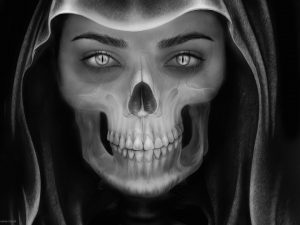Dealing with the deaths of problematic figures
October 1, 2018
John McCain passed away a few weeks ago at the age of 81. He knowingly caused the deaths of thousands of Middle Eastern people. “But he was human too.”
XXX passed away a few months ago at the age of 20. He domestically abused a pregnant woman. “But he was human too.”
When public figures die, they are often glorified and their legacies are expunged of any wrongdoing. Some people are brave enough to criticize legacies that they view as questionable, but even then, their voices are often smothered with meaningless cries appealing to a shared sense of humanity.
People are not inherently good by virtue of being humans. One is born into this world having done no right or wrong and the only thing capable of removing that neutrality is choice. The choices we make determine who we are as people.
It is necessary to pass judgments on actions in order to determine what constitutes as morally acceptable behavior. Ethics itself is only determined by society and the collective beliefs and values of its citizens which makes it imperative to condemn certain actions in order to create norms against such practices. A refusal to speak out only continues injustice which is why there are protests initiated and scathing editorials written about the questionable courses of action important figures take.
But once that someone perceived as questionable dies, nearly all voices of criticism go silent.
Death should not be a shield. A person’s decisions are on display for the world to see and can be examined and judged through thorough research. Therefore, the inability of the dead to defend themselves is not a meaningful objection. Some refuse to condemn immoral actions of those who recently died and cite the golden rule: “Treat others how you want to be treated.” Yes, death might scare you and the possibilities of how you might be remembered may terrify you, but it is selfish to succumb to those fears and sanitize the violence of repugnant actions.
I may believe that John McCain and XXX were bad people, but the point of this article is not to determine who is questionable and who is not. Those things are subjective evaluations of actions and assignments of moral worth. But if you do find a person’s legacy questionable, you undoubtedly should speak up, even if they have died.
The outpours of sympathy and the cult-like rush to worship those that have died as exalted saints is perplexing. After all, these figures are not deities. They are not supernatural. All of these people were capable of choosing between good and bad and they made their decisions, just like all of us. There will inevitably be responses to criticism of the dead, which will claim that it is distasteful to bring up one’s mistakes after their passing because after all, they were human too.
But that, is precisely the point.



